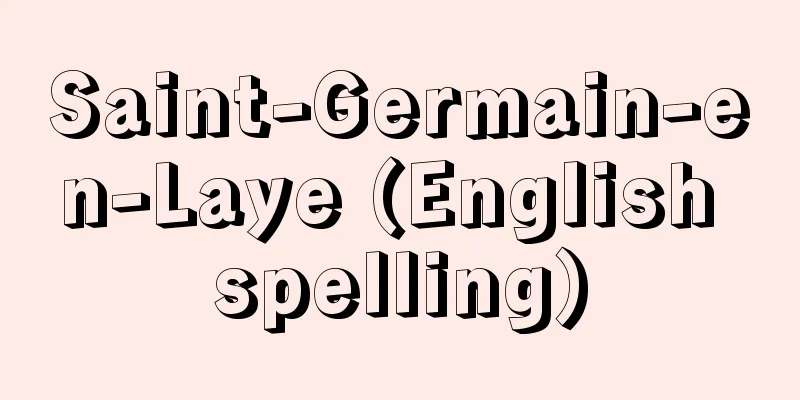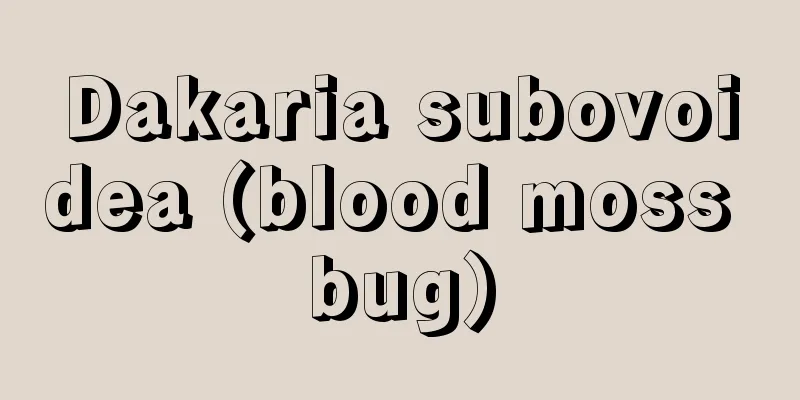August Heinrich Hoffmann von Fallersleben

|
1798‐1874 German poet. Born in Fallersleben near Braunschweig. Became a professor at the University of Breslau in 1830, but was dismissed due to his radical collection of poems, Nonpolitical Songs (1840-41). In addition to his free-spirited, patriotic lyric poetry, he is known for his easy-to-sing folk-style children's songs and love songs. He is also famous as the author of Germany's national anthem, Deutschland, Deutschland über alles. [Maeda Shoichi] Source: Heibonsha World Encyclopedia, 2nd Edition Information |
|
1798‐1874 ドイツの詩人。ブラウンシュワイク近傍ファラースレーベンの生れ。1830年ブレスラウ大学の教授となるが,急進的な詩集《非政治的歌謡》(1840‐41)のために罷免された。自由精神にあふれた愛国的な抒情詩のほか,歌いやすい民謡調の子供の歌や恋の歌で知られる。ドイツの国歌Deutschland,Deutschland über allesの作者としても名高い。【前田 彰一】 出典 株式会社平凡社世界大百科事典 第2版について 情報 |
Recommend
Niehoff
…Spain developed open instruments such as the hor...
Dystocia
Breech birth So-called Breech ( Sakana ) The larg...
Kajikawa
A former village area in northern Niigata Prefectu...
Humiliation
…the Humiliati, a group formed in northern Italy ...
Fats and fatty oils
A general term for substances whose main componen...
Ashley Law - Ashley Law
…He was active in the Committee on the Treatment ...
Gokinai-shi - Gokinai-shi
A comprehensive geographical guide for the five re...
Liberation Area - Kaihoku
The original language is Chinese. It means an are...
Siglo de Oro (English spelling)
…It generally refers to the period from the 16th ...
Namiai [village] - Namiai
A village in Shimoina County in the southwest of N...
Pierre Jean de Béranger
A French composer of ditties (chansons). He gaine...
Marine mammals
…the general term for marine mammals that live in...
Ichidaisots
The name of an official position in Ito Province,...
Pteromys momonga (English name) Pteromysmomonga
…[Yoshiharu Imaizumi]. … From [Squirrel] …[Tadaak...
Avalanche photodiode
…The photoelectric conversion effect includes the...









